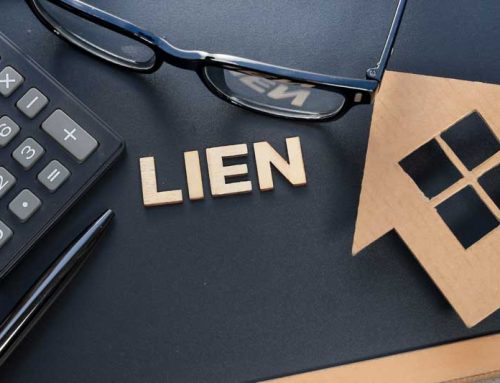How to Effectively Negotiate Lien Claims in Construction
Understanding Lien Claims in Construction
In the construction industry, lien claims are a common tool used by contractors, subcontractors, and suppliers to ensure they get paid for their work and materials. Understanding the intricacies of lien claims is essential for effective negotiation and resolution. This section will delve into what lien claims are, their purpose, and their impact on construction projects.
What are Lien Claims?
Lien claims, also known as mechanics’ liens, are legal claims against a property by a contractor or subcontractor who has supplied labor or materials but has not been paid. These claims secure the right to seek compensation by potentially forcing the sale of the property.
Purpose of Lien Claims
The primary purpose of lien claims is to provide security to contractors and suppliers, ensuring they are paid for their contributions. This legal right helps maintain financial stability in the construction industry by providing a mechanism to recover unpaid debts.
Impact of Lien Claims on Construction Projects
Lien claims can significantly impact construction projects by delaying progress, affecting financing, and complicating property transactions. A property with an active lien claim may be difficult to sell or refinance, making prompt resolution essential.
Steps to Effectively Negotiate Lien Claims
Negotiating lien claims requires a strategic approach to protect your interests while seeking a fair resolution. Here, we outline the key steps to effectively negotiate lien claims in construction.
1. Thoroughly Review the Claim
The first step in negotiating a lien claim is to thoroughly review the claim’s details. This includes verifying the work performed, the materials supplied, and the amounts claimed. Ensure that all documentation is accurate and complete.
2. Assess the Validity of the Claim
Not all lien claims are valid. Assess the claim’s validity by checking if the claimant followed all legal requirements, such as filing deadlines and proper notifications. Invalid claims can be contested and potentially dismissed.
3. Communicate with the Claimant
Open communication with the claimant is crucial. Reach out to discuss the claim, express your willingness to resolve the issue, and gather additional information. This can help build a cooperative atmosphere and facilitate negotiations.
4. Evaluate Payment Options
Consider various payment options to settle the lien claim. This might include lump-sum payments, installment plans, or even offering alternative compensation, such as providing additional work or materials.
5. Negotiate Terms and Conditions
During negotiations, focus on terms and conditions that protect your interests. This includes setting clear deadlines for payments, obtaining lien waivers upon payment, and ensuring that any agreement is documented in writing.
6. Seek Legal Advice
Negotiating lien claims can be complex, and seeking legal advice is often necessary. A legal expert can provide guidance on your rights, help assess the validity of the claim, and assist in drafting agreements to ensure they are legally sound.
Common Challenges in Negotiating Lien Claims
Negotiating lien claims can be fraught with challenges. Understanding these challenges can help you prepare and navigate the negotiation process more effectively.
Disputed Claims
Disputed claims arise when there is disagreement over the work performed, the quality of materials supplied, or the amounts claimed. Resolving these disputes may require mediation or arbitration.
Incomplete Documentation
Incomplete or inaccurate documentation can hinder negotiations. Ensure that all contracts, invoices, and communication records are organized and readily available to support your case.
Tight Deadlines
Lien claims often come with tight deadlines for filing and responding. Missing these deadlines can complicate negotiations and limit your options. Stay aware of all relevant deadlines and act promptly.
Best Practices for Preventing Lien Claims
Preventing lien claims from arising in the first place is the best strategy. Implementing these best practices can help mitigate the risk of lien claims on your construction projects.
Clear Contracts
Ensure that all contracts are clear, detailed, and include specific terms regarding payment schedules, scope of work, and dispute resolution processes. Clear contracts reduce misunderstandings and provide a solid foundation for resolving issues.
Regular Payments
Make regular payments to contractors and suppliers according to the agreed-upon schedule. Prompt payments reduce the likelihood of lien claims and build trust with your project partners.
Lien Waivers
Request lien waivers from contractors and suppliers upon making payments. Lien waivers provide legal proof that the claimant has been paid and waives their right to file a lien for the amounts covered by the waiver.
Effective Communication
Maintain open and effective communication with all parties involved in the project. Address issues promptly and collaboratively to prevent them from escalating into lien claims.
Using Lienguard’s Services for Lien Claims
Navigating lien claims can be complex and time-consuming. Lienguard offers comprehensive lien filing services to help you manage and resolve lien claims efficiently. Here’s how Lienguard can assist you:
1. Professional Expertise
Lienguard’s team of experts understands the legal requirements and procedures involved in filing and negotiating lien claims. Their expertise ensures that all claims are handled accurately and in compliance with legal standards.
2. Streamlined Process
Lienguard provides a streamlined process for filing and managing lien claims, saving you time and reducing the administrative burden. Their services include preparing and submitting necessary documentation, tracking deadlines, and ensuring compliance with all legal requirements.
3. Customized Solutions
Lienguard offers customized solutions tailored to your specific needs. Whether you are a contractor, subcontractor, or supplier, Lienguard can provide the support you need to protect your interests and resolve lien claims effectively.
4. Legal Support
Lienguard can connect you with legal professionals who specialize in construction law and lien claims. This additional support can be invaluable in complex cases, ensuring that you have the legal backing needed to negotiate and settle claims successfully.
Conclusion
Effectively negotiating lien claims in construction requires a strategic approach, thorough preparation, and clear communication. By understanding the purpose and impact of lien claims, following best practices for negotiation, and implementing preventive measures, you can protect your interests and ensure the smooth progression of your construction projects.
Lienguard is here to support you every step of the way. With their expertise and comprehensive services, you can confidently navigate the complexities of lien claims and focus on the successful completion of your projects.




